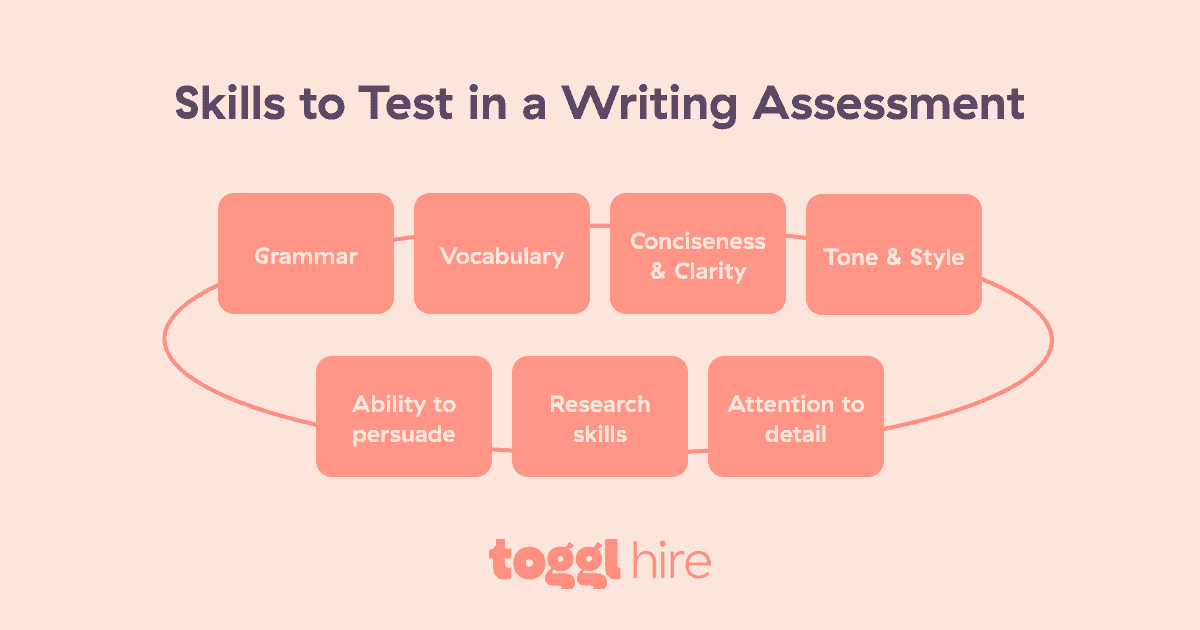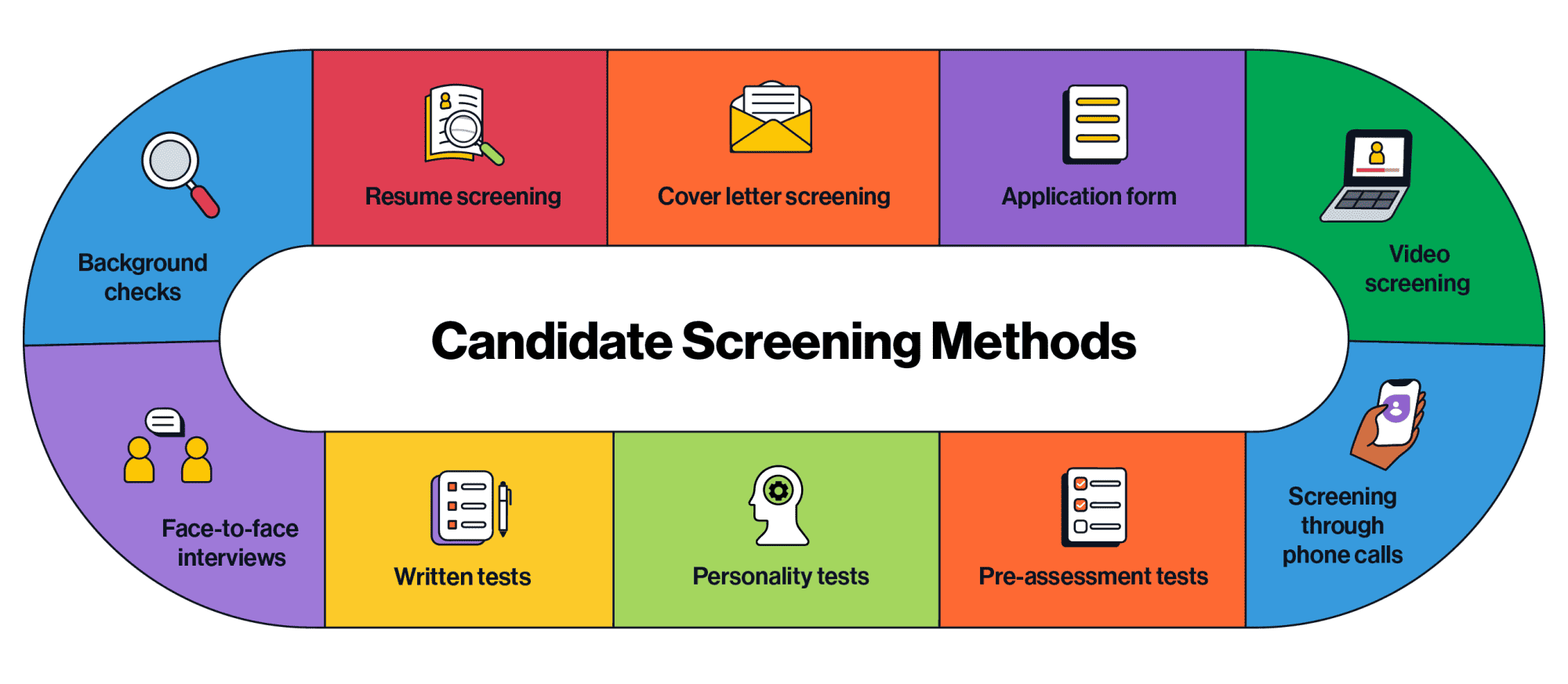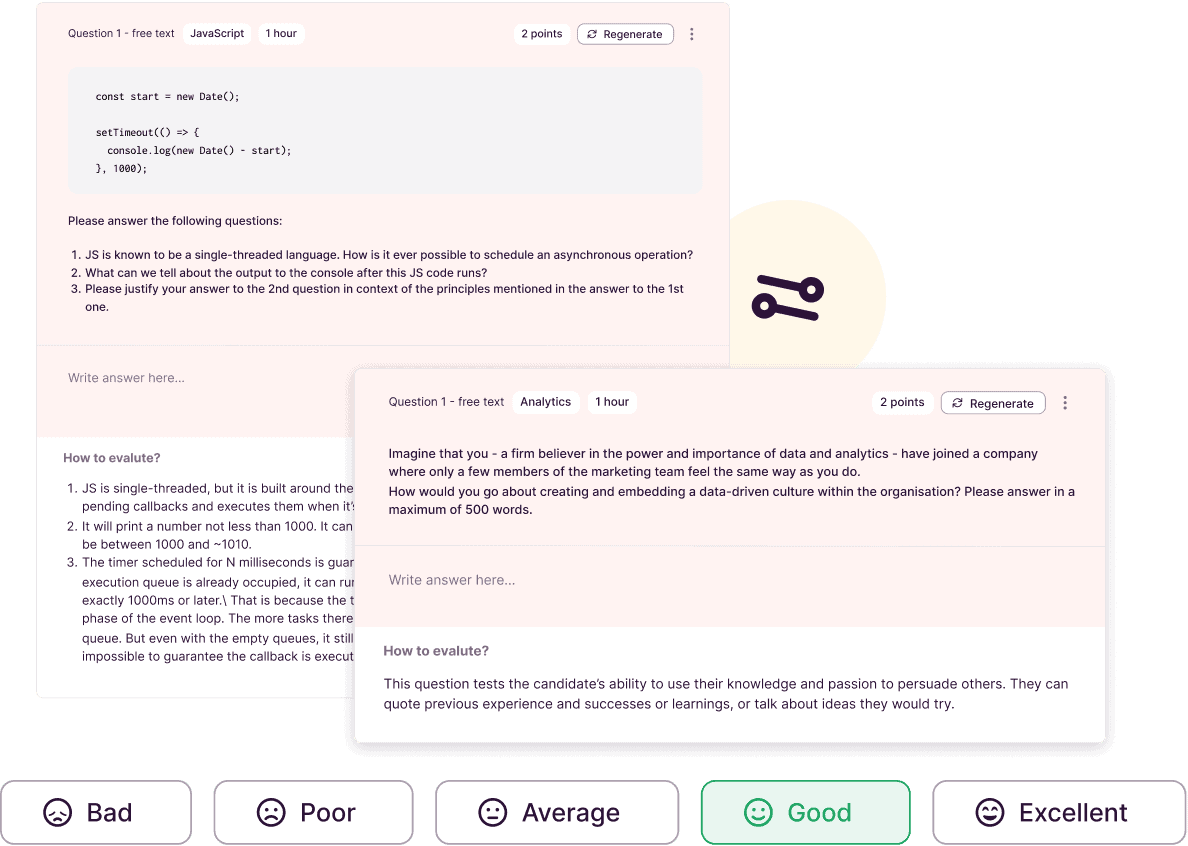
A writing skills assessment test comes in handy when hiring for various roles – from the more obvious ones like content writers or marketers to more nuanced business roles like product managers.
Poor business writing can cost an organization an unhappy customer, at best, and missed business goals or a lawsuit at worst.
Testing candidates’ writing skills can ensure they have the proficiency to write, work smoothly with other colleagues and have a positive impact on customers, partners and other external stakeholders.
We’ll share a few pointers to help you design a writing skills assessment that surfaces applicants with great written communication skills. Here we go.

A writing skills test provides a way to measure candidates’ written communication skills and their overall writing process. A typical writing skills assessment will test a person’s grammar and sentence structure, spelling and punctuation, and the clarity of their business communication.
Depending on the role, the test taker may also need to demonstrate more advanced writing skills.
For example, an email marketer must be able to write in an engaging, persuasive way to get the reader to click on their email links – that’s conversion copywriting at play. A product manager must demonstrate a capacity to eloquently express their ideas, explain the business logic of a new feature and align cross-functional teams via written communication.
Today, not only copywriters and content team members need good writing skills. It’s also essential for all customer-facing roles like sales, customer service, and customer success. If employees lack basic writing skills they risk:

Hiring teams that select talent with good writing skills can save the business time and revenue, and boost productivity.
According to the 2023 State of Business Communication report by The Harris Poll and Grammarly, miscommunication costs US businesses approximately $1.2 trillion annually.
The report also highlights that employees typically spend half of their work week on written communication, such as writing emails, documenting processes, preparing presentations or communicating via a text-based chat. And that teams can lose up to one entire workday per week, resolving poor team communication issues!

Writing tests can help talent acquisition teams recruit quality candidates. But here’s an even better hack — job-specific writing skills assessments. The benefits of this form of written assessment recruiting tool include:
The fundamental skills a writing assessment should test for in a suitable candidate include:

Wondering what type of job-specific writing assessment test to choose? Well, many testing platforms offer customizable test types, such as:
Choosing the right one will depend on the job requirements.
For example, a task-based test, such as asking a shortlisted candidate to suggest new ad copy, is a great writing test for a copywriter.
If you’re hiring for a team lead or a more senior position in people operations, for example, a homework assignment based on communicating new benefits policy to employees will be key to assessing their writing skills in the HR context.
If you’re hiring a graphic designer, a portfolio assessment or review will be key to assessing their design skills. Or, for a marketing executive, a multiple-choice test on core marketing principles will work well.
To test applicants’ writing skills effectively, use a job-specific writing test. This type of test should incorporate different components that test all the facets of a candidate’s writing skills. Your test should take into consideration best practices, such as:
The tasks and questions that you include should simulate the real-world tasks that the successful candidate will actually perform on the job. For instance, for a freelance content writer for an HR SaaS tool, you could ask them to write a short article that explains a complex HR concept to a non-technical audience.
Make sure the writing skills test covers the full range of writing skills, including grammar, punctuation, style, tone, vocabulary, and structure. Plus, it should also assess the candidate’s ability to understand and explain complex concepts simply and concisely.
This is a goodie!
Incorporate tasks that are based on real-life scenarios. For example, writing emails is a core skill for sales managers and customer success professionals, so why not simulate the experience of reaching out to a customer via email? Instead of trusting applicants’ self-assessment, see their core skills in action and decide for yourself!
Plus, in this instance, you get two-for-one — not only assessing their writing abilities but also evaluating their understanding of your product and target audience.
If a candidate is applying for a new role, they are often still working full time and don’t have much spare time. So make sure your test is short, user-friendly, and accessible when it suits them to complete it.
A writing skills assessment is one component in the hiring process and forms part of the pre-employment assessments.
To ensure the candidate experience is a good one, the writing skills test should be an intuitive and easy step for applicants.

Here are a few things you can do to ensure the writing skills test is a positive candidate experience:
After applicants have completed their writing test, the hiring team will need to evaluate the results and select the most suitable candidate.

Juste loves investigating through writing. A copywriter by trade, she spent the last ten years in startups, telling stories and building marketing teams. She works at Toggl Hire and writes about how businesses can recruit really great people.
Insights into building businesses better, from hiring to profitability (and everything in between). New editions drop every two weeks.



Projects Managing projects gets a little tricky at times. Check out our resources to learn how to run your projects better. Check it out
Talent Acquisition Finding recruitment a bit of a struggle? Dive into our resources to get the latest scoop on creative hiring tactics and techniques! Check it out
Time, time, time! Manage your time better to get the most out of your day. Learn how to manage your time better and claw back those vital hours. Check it out
Business Growth For those who are just starting up or taking your small business to the next level, we feel ya 😬 Check it out